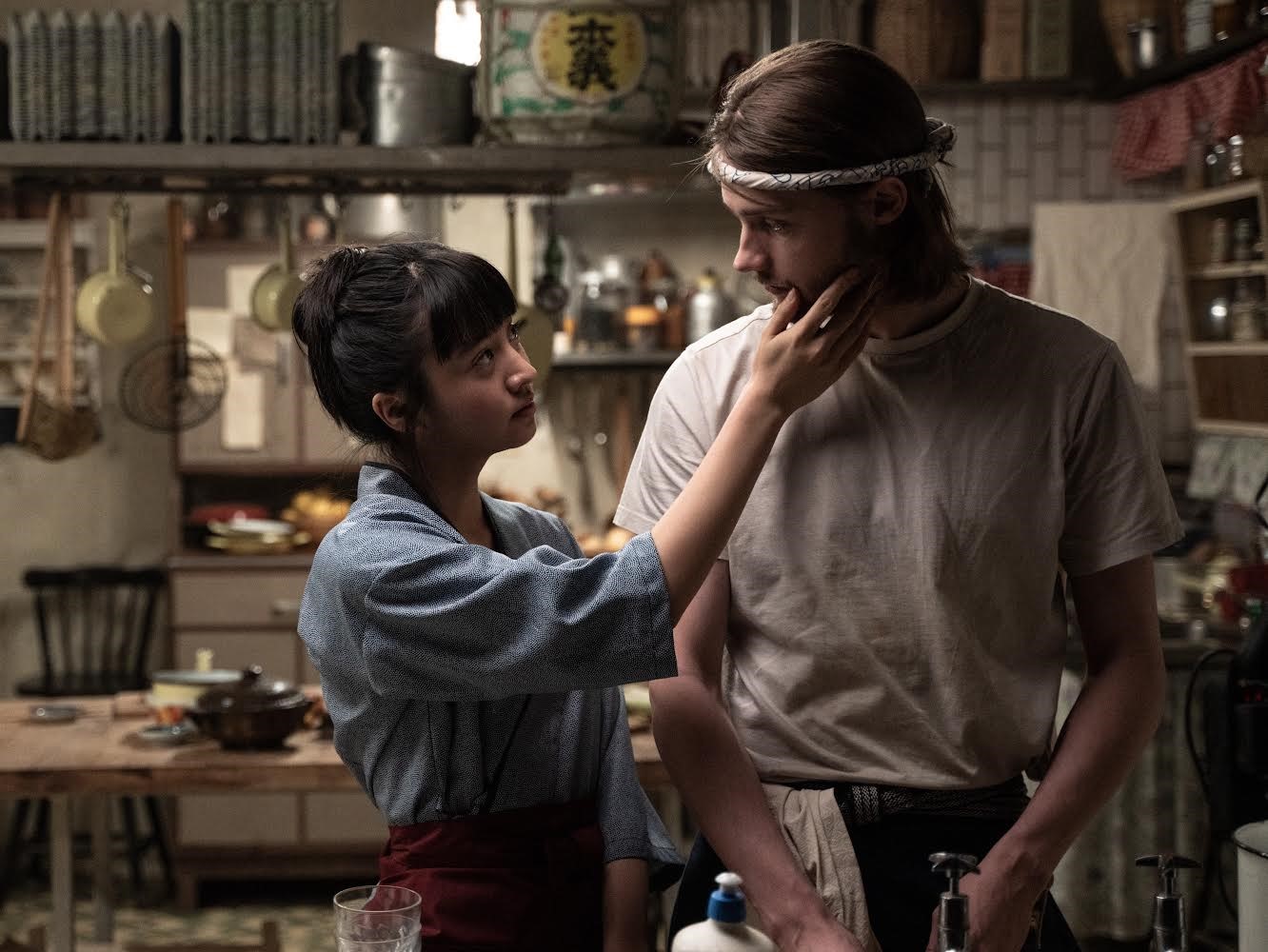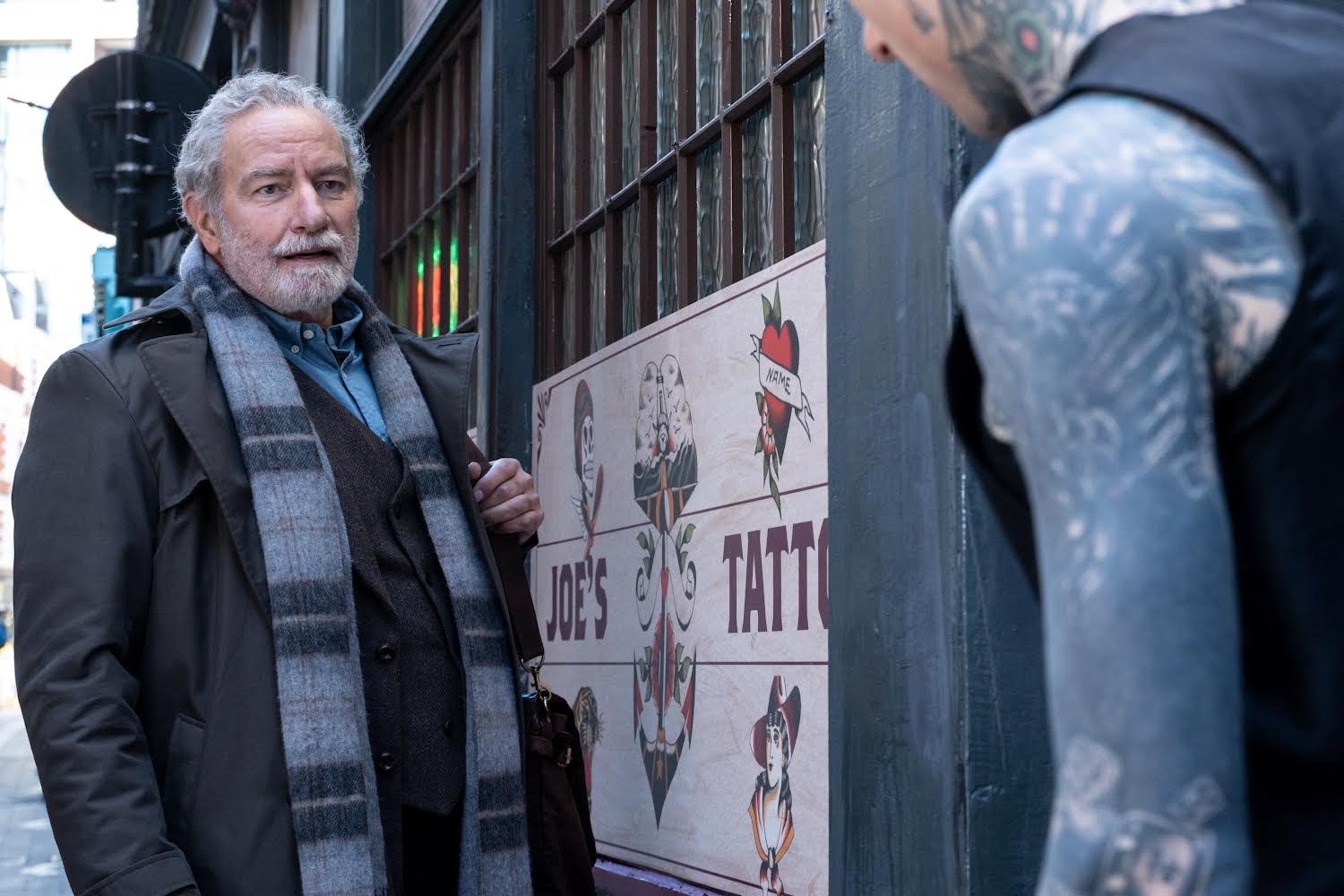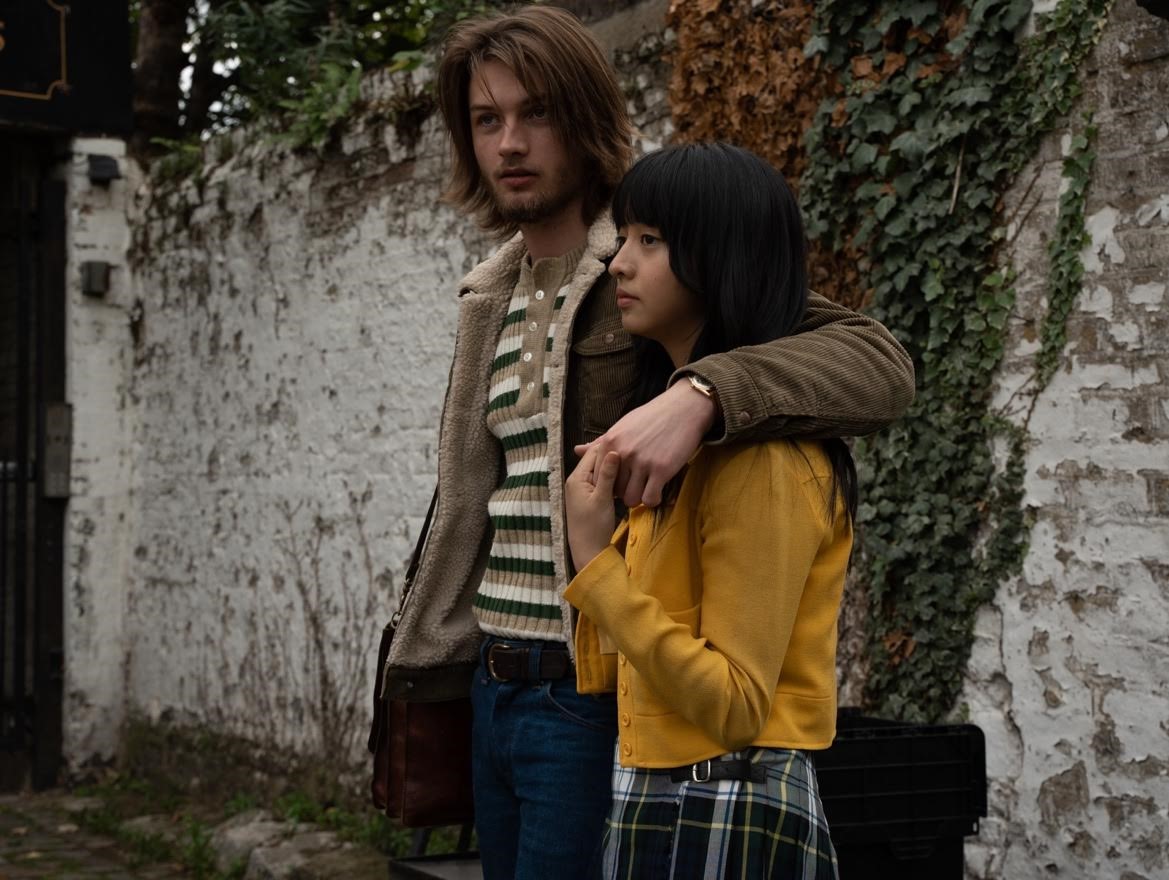Baltasar Kormákur on his new movie 'Touch'
It's been 25 years since Baltasar Kormákur made his debut film, the black romantic comedy 101 Reykjavík. With his current film Touch, the 58-year-old Icelandic director-actor-producer has made a very personal film that reflects his evolution in life, art, and love.
Tina Jøhnk Christensen spoke to Baltasar Kormákur about Touch, his family, his ties to Iceland and more, on behalf of Icelandair. All photos by Lilja Jóns for RVK Studios.
It was Baltasar Kormákur’s daughter Sóllilja who gave him the novel Snerting (in English, 'Touch'). It was Christmas 2021, and the book – written by one of Iceland’s top novelists, Ólafur Jóhann Ólafsson – was wrapped under the Christmas tree, which is a beloved tradition in Iceland. You give books to your loved ones for Christmas – and there are plenty to choose from, as Iceland is known for its large number of prolific authors.
Still, this was an uncommon gesture by Sóllilja Baltasarsdóttir, who is named after the tragic character Ásta Sóllilja in Halldór Laxness’ Icelandic classic Independent People, and who now gave her father this rather unusual present. His interest was piqued: Why did his daughter think he would connect with it? It turned out she was right. He related so much to the main character Kristófer’s search for closure that within a week of finishing the book, he called the novelist and grabbed the rights.
As Baltasar and author Ólafur started writing the film screenplay together, and Baltasar eventually started filming Touch in Iceland, the UK and Japan, he discovered a much deeper connection that led him to understand his impulsive reaction.
“As with many people, my relationship with love has changed throughout the years,” says Baltasar over Zoom from Reykjavik. “I think that my film 101 Reykjavík might explain that throughout the about 25 years gone by, you can see how important and serious I take [love] now, rather than maybe as a field for black humor back then.”
Kormákur is referring to his first film, 101 Reykjavík from 2000. Here, the lead character is in his 30s and living with his mother while having an affair with her Spanish flamenco-dancer lover. It's comedy that reflects a man who isn't terribly serious about love and family.
“It's not to say that I did not love back then. But now it's different. And I'm not only talking about love of a spouse or a wife. I'm talking about love towards your children, love towards life, and love in general. This film [Touch] is probably not something I would have sought to make back then. But now, it felt right.“

A romantic drama with a personal touch
Touch is a romantic drama that follows widower Kristófer (Egill Ólafsson), who decides to solve one of the great mysteries of his life after he receives a devastating diagnosis.
Despite the onset of the covid pandemic, he boards an Icelandair flight to London to find out what happened to the great love of his youth, Miko (played by actress Kōki), whom he met as a student while working at a Japanese restaurant in London in the late 1960s. At the height of their whirlwind love story, Miko simply disappeared.
“I connect more with the story than I'd realized,” reflects Kormákur, whose father is the Catalan painter Baltasar Samper. “In the middle of an interview about the film I realized that my parents met exactly like Miko and Kristófer. They met in a restaurant in Iceland. My father, who was from Spain, was passing by the country, and then he met my mother. They were engaged to be married 18 days later, and they stayed together and they're still together. So the difference between the two stories is that he [my father] didn't lose her. But still my whole existence is based on that sole moment, which was a total coincidence.”
There's also the multicultural aspect, and the cross-cultural love story of Kristófer and Miko. Touch takes place in Iceland, the UK and Japan, and the main characters are Icelandic and Japanese.
“I'm of Catalan, French and Basque heritage, but I'm very Icelandic as well,” says Kormákur. “The perspective of coming from Iceland is strong for me. But at the same time I'm more than that, which is why my first film was about a Spanish flamenco dancer in Iceland. So that part of me is differently strong, and those multicultural language barriers are very appealing to me.”
Touch jumps back and forth in time. It also changes from simply being about a man who is looking for closure and a romance between two young people who coincidentally meet in London, to then finally become the unveiling of a mystery, which dates back to the catastrophe in Hiroshima during WWII. The novelist Ólafur Jóhann Ólafsson had previously been living in Japan, but to Kormákur the culture was a little more foreign.
“I realized that there are more similarities between the Japanese and Icelandic,” says Kormákur. “This is a little sensitive but I think that the things we think are a little strange about Japanese people aren't that different from us. I think we are eccentric in a way that we do things like the Japanese ... and I say this in a positive way. Sometimes you realize that we are more connected than we are disconnected. It is an island mentality as well.“
A family affair
Touch could be called a family affair: Kormákur’s oldest daughter introduced him to the novel, and later his son, Palmi Kormákur, became one of Touch’s leading men, playing the younger Kristófer.
It was an unexpected twist, as Pálmi Kormákur was the son who had shown little interest in acting. Pálmi's brothers, Baltasar Breki Samper and Stormur Jón Kormákur Baltasarsson, are both following in their father’s footsteps, but Pálmi was in fine arts school in the Netherlands and had several times declared that he did not want to act. Until he did.
Kormákur’s initial reaction when he realized his son was the best suited Icelandic actor to the role was: ‘Fuck.'
“I thought: ‘Shit, now I have a problem. He is by far the best choice. We've checked every Icelandic actor and they were great, but they were just not right for this role.’ Then I realized that nepotism might end up in the conversation.”
But Baltasar was sure of his choice and so was everyone who saw Pálmi's audition. Baltasar's other son, Stormur, had also auditioned, but was too much of a ‘dude’ like his father had been as a young man, whereas Pálmi was shy, gentle, and soft-spoken.
“In a weird way, it's the same when a painter paints a portrait of himself and it's projecting his face and his inner life,” explains Kormákur about working with his son. “A filmmaker is not that different. Often filmmakers choose some leading characters that are kind of related to them in some way, in the way they look or in spirit or whatever, and certainly, when you are directing your son, it's almost like it doesn't only come from inside of you, it comes from inside from inside of you, you know? It's so much from inside of you that every little thing he's doing, you know whether it's true or not, because you've known him since he was a child.”
Pálmi Kormákur’s scenes take place mainly in London presented as the late 1960s, when Kristófer leaves university to learn the craft of the Japanese kitchen and to be close to Miko. He speaks Icelandic, English and Japanese in the film.
“I was floored by how easily he could connect with his own emotions both in Icelandic and English, which is not always easy.“

A maturing sex symbol
The movie begins with Kristófer as an elderly widowed man whose health is in decline in Iceland. He decides to solve his life’s biggest mystery before it's too late. Baltasar chose Egill Ólafsson (pictured above), a 71-year-old Icelandic singer, songwriter and actor, who is a legend in his home country and was known to Baltasar from when he was a child.
“I loved his whole demeanor, the way he spoke and the way he moved,” explains Kormákur. “I loved his energy. As a younger man, he had all this energy and testosterone and he was a sex symbol. Now he's just a beautiful older man.”
However, Egill was dealing with health issues of his own. He had been diagnosed with Parkinson’s and Baltasar noticed that his movements had changed. But he was sure Egill was right for the role, and they simply worked around any issues that occurred.
“It's also in some way a portrayal of my father, and he's this beautiful man who is beautifully dressed always. He doesn't take much space but women like him a lot. He's getting close to 90 but there's something about him. Some kind of romantic charm. I didn't want people to feel sorry for him. I wanted both women and men to feel they were on the journey with him and enjoy it. So I added some humor into it. I wanted someone who even at that late stage would give you a romantic feeling.”
It was important for Baltasar that there was no self-pity or melancholy about Kristófer, who is on a very determined mission. Egill Ólafsson had that charisma.
“You never see him feeling sorry for himself. He's looking for something and he takes responsibility for his life.”

Rooted in Iceland
In the 25 years between making 101 Reykjavík and Touch, Baltasar has made it big in Hollywood. He has films such as Contraband (2012), 2 Guns (2013), Everest (2015), Adrift (2018) and Beast (2022) on his resume. He's worked with big-name actors including Mark Wahlberg, Denzel Washington, Jake Gyllenhaal, Idris Elba, and Shailene Woodley, to name a few.
“I'm very grateful for that and I don’t ever want to sound like I'm not,” he says about his international career. “But at the end of the day, I'm more proud of what I have achieved in Iceland and for Iceland.”
And even though he travels the world to make his movies, he always returns home.
“It's not even a choice,” he says firmly. “I am so strongly tied to this country. I just came back from 17 days of horseback riding in the mountains. I went to north Kjölur, which is the mid-highlands of Iceland, and to Hveravellir where the outlaws stayed, and then I rode back over Arnarvatnsheiði.”
During the night, Kormákur stayed at the so-called happy houses, which is what sheep farmers use in fall when the herds are taken off the mountains. Here you connect with the local communities who built them. It makes you connected to your country, he feels.
“It's hard to say why it has this effect on me. Why do I want to stay in the mountains? It rained for like 12 of the 17 days. You ride for 12-15 hours a day and you mostly deal with trouble with the horses, finding places where they can eat, but there is something about this that gives you a broader meaning of who you are.”
He pauses. “And it's not wandering around and looking at glaciers or waterfalls. It's just connecting with the nature of your own background, of your being.”
---
Read an earlier interview with Baltasar from 2022, in which he talks about his production company and studios known as RVK Studios, and about bringing international productions to Iceland.
---
About our interviewer: Tina Jøhnk Christensen is an award-winning journalist and author from Odense, Denmark. Since 2013, she has been a voter for the Golden Globe Awards. Tina is based in Los Angeles and is a regular visitor to Iceland, which she loves. She covers film-related subjects for Icelandair.